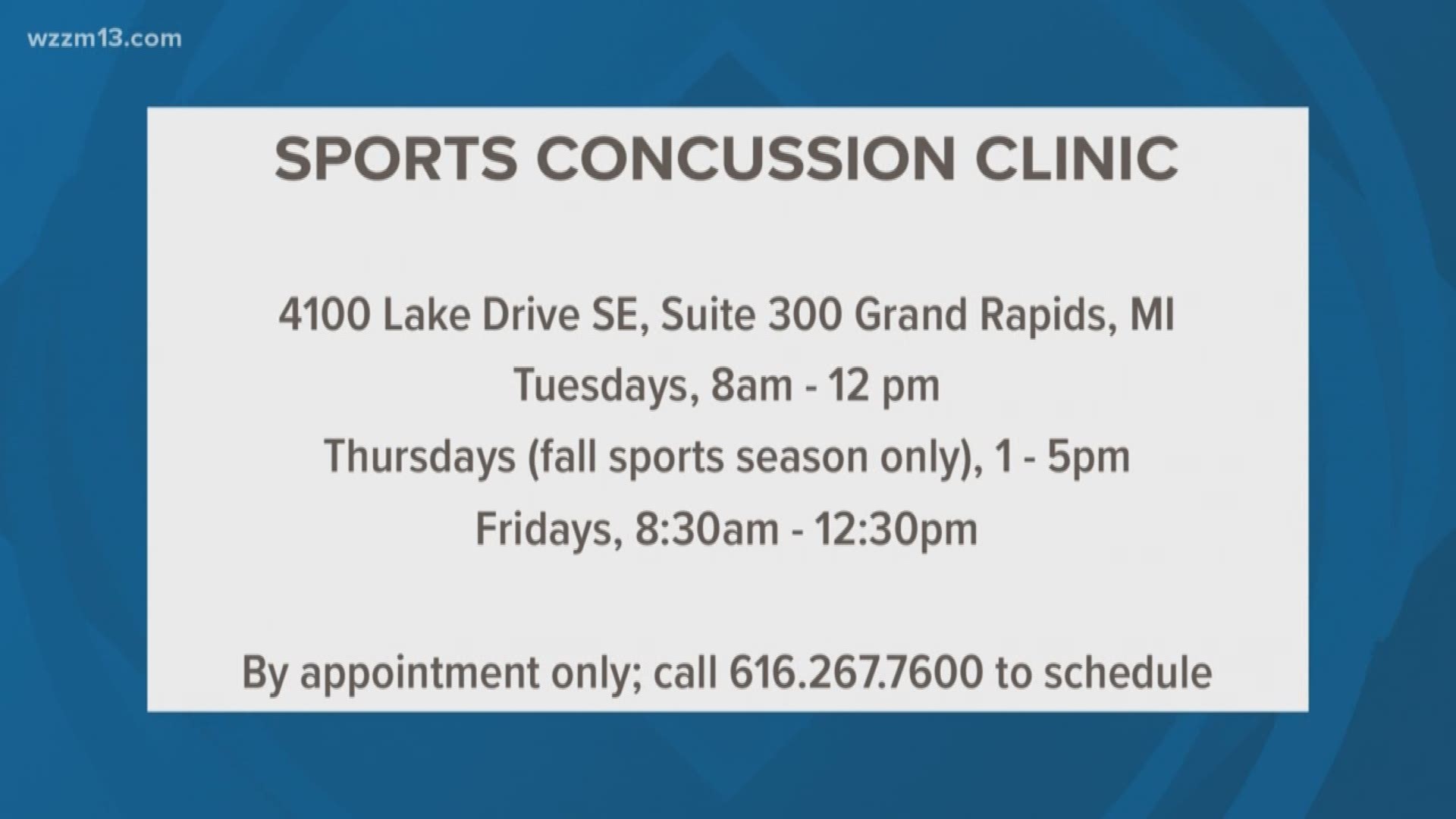With the school year approaching and fall sports heading underway, concussions are a big risk for athletes. Concussions can be tricky to spot, but if left undiagnosed, they can lead to serious health issues. Spectrum Health Neuropsychologist Dr. Michael Lawrence stopped by to walk us through the process of diagnosing, treating, and recovering from concussions.
A concussion is caused by a blow or a jolt to the head. This sudden movement causes the brain to bounce around within the skull which can stretch or damage brain cells and create chemical changes in the brain, keeping the brain from working normally. Symptoms of a concussion may last less than a day or may linger for months or longer.
Typical symptoms of concussions include headache, difficulty concentrating or feeling “foggy,” slower reaction times, dizziness/lightheadedness, nausea, difficult with bright lights or loud sounds, irritability and more. However, after a concussion, 47% of athletes don’t report any symptoms, so parents and coaches must be active in keeping players from returning to the game before getting proper medical clearance.
If an athlete sustains a concussion during a game, it’s important that he or she does NOT return to play. Athletes should not resume athletic activity until cleared by a medical professional. Long-term health risks from concussions include memory problems, personality changes, inattention and lack of concentration.
Spectrum Health Medical Group’s Sports Concussion Clinic is committed to helping athletes who face concussions. For more information on concussions and clinic times and appointments, visit https://www.spectrumhealth.org, or call 616-267-7600.
►Make it easy to keep up to date with more stories like this. Download the 13 ON YOUR SIDE app now
If you would like more information about advertising with 13 ON YOUR SIDE, please contact Jeff Olsen at jolsen@wzzm13.com

